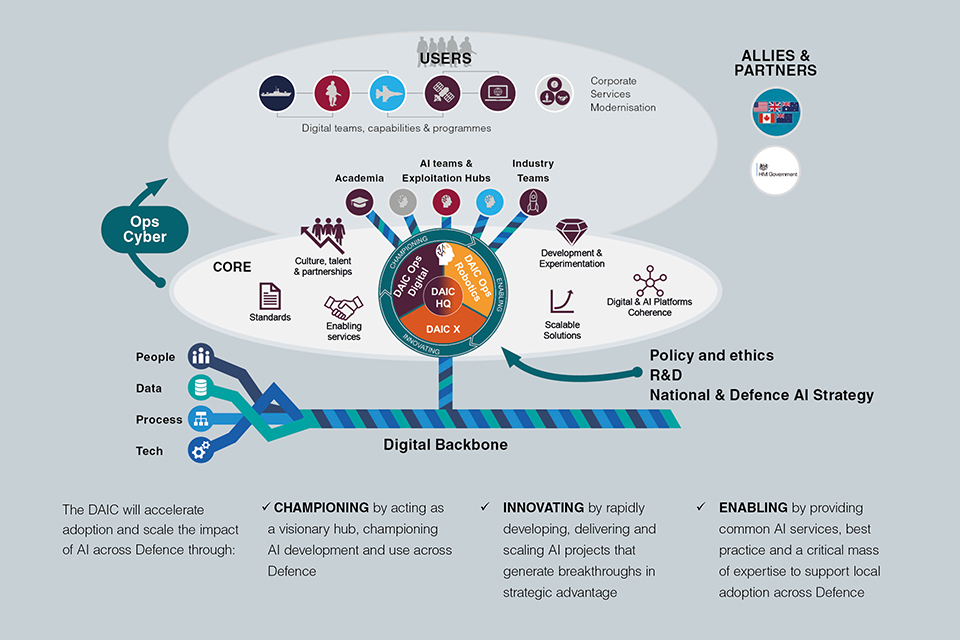Discover how AI is revolutionizing the world of nuclear deterrence, unraveling futuristic strategies and redefining global security.
We delve into the fascinating world where technology meets global security. In this post, we explore how artificial intelligence (AI) is revolutionizing nuclear deterrence strategies worldwide. If you’re new to this concept, don’t worry; we’ll guide you through it step by step!
The Rise of AI in Nuclear Deterrence
Before diving into the role of AI in nuclear deterrence, let’s first clarify what nuclear deterrence entails. Historically, nations have relied on possessing nuclear weapons as a means to prevent adversaries from attacking, creating a delicate balance of power. Now, with the advent of AI, nuclear deterrence has reached new heights.
AI has emerged as a critical component of nuclear deterrence policies and technologies. It brings advanced capabilities to handle vast amounts of data and make informed decisions swiftly. Autonomous systems developed through AI are making their way into the defense sector, opening up new possibilities for strengthening deterrence strategies.
AI-Driven Innovations in Nuclear Weaponry
One area where AI is making a substantial impact is in the development and refinement of nuclear weapon systems. Machine learning algorithms, a key aspect of AI, are enhancing the accuracy and precision of targeting. By analyzing vast datasets and learning patterns, AI can assist in improving the effectiveness of nuclear arsenals.
While AI holds great promise, incorporating AI-controlled systems into nuclear weaponry raises ethical concerns. The idea of autonomous systems controlling destructive capabilities is understandably met with apprehension. Striking the right balance between human oversight and the efficiency of AI-controlled systems is crucial in maintaining ethical grounds.
“Embrace the power of Artificial Intelligence, transforming the landscape of nuclear deterrence. Check out this game-changing blog post on how AI is shaping our world! #AI #NuclearDeterrence #Gamechanger”
AI for Nuclear Threat Detection and Dissuasion
AI’s potential extends beyond the development of nuclear weapon systems; it can also play a vital role in detecting and mitigating nuclear threats. With AI, monitoring and early warning systems can be strengthened, decreasing the chances of surprise attacks.

Image courtesy of www.gov.uk via Google Images
Machine learning algorithms are adept at identifying anomalous behavior within nuclear programs, enabling authorities to detect potential threats more effectively. Moreover, AI can contribute to verification mechanisms in nuclear disarmament efforts, enhancing transparency and accountability in reducing nuclear stockpiles.
The Expanding International Dialogue on AI and Nuclear Deterrence
Over the years, the topic of AI in nuclear deterrence has gained significant momentum and international traction. This surge can be largely attributed to the rapid proliferation of AI technologies and the associated geopolitical implications.
The complexity surrounding the regulation of AI in nuclear deterrence has sparked a global conversation on its potential risks and benefits. As nations strive to harness the power of AI in their nuclear strategies, international cooperation and collaboration become imperative in establishing ethical guidelines and minimizing the risks of unintended consequences.
In Conclusion
The integration of AI in nuclear deterrence has undeniably transformed the global security landscape. By leveraging AI’s computing power and analytical capabilities, nations can enhance their deterrence strategies in a rapidly evolving world.
As with any powerful technology, caution and responsible implementation are of utmost importance. Striking a balance between embracing AI’s benefits and addressing the ethical concerns associated with autonomous systems is crucial. International dialogue and collaboration will continue to shape the future of AI in nuclear deterrence, ensuring the technology is harnessed responsibly to maintain global peace and stability.
Thank you for joining us on this exploration of AI’s impact on nuclear deterrence. We hope this article has provided you with valuable insights into this complex and evolving topic. Stay tuned for more exciting discussions on the intersection of technology and global security.
In addition,
How AI is Transforming Nuclear Deterrence
Nuclear deterrence is the strategy of preventing nuclear war by making it too costly for an adversary to attack. AI is transforming nuclear deterrence in a number of ways:
- Improved intelligence and surveillance: AI can help to detect and track nuclear weapons and delivery systems more effectively, making it more difficult for an adversary to launch a surprise attack.
- Faster and more reliable decision-making: AI can help nuclear decision-makers to process information and make decisions more quickly and accurately, especially in a crisis situation.
- Improved cyber defenses: AI can help to protect nuclear command and control systems from cyberattacks.
- New weapons and delivery systems: AI could be used to develop new types of nuclear weapons and delivery systems, which could make nuclear deterrence more complex and challenging.
Why is this topic gaining momentum?
There are a number of reasons why the topic of AI and nuclear deterrence is gaining momentum:
- Advances in AI technology: AI technology is rapidly advancing, and military powers are investing heavily in AI research and development. This means that AI is becoming more powerful and capable, and it is likely to play an increasing role in nuclear deterrence in the future.
- Growing concerns about nuclear proliferation: The spread of nuclear weapons to new countries is a growing concern. AI could make it more difficult for nuclear powers to deter each other, and it could also make it easier for non-state actors to acquire nuclear weapons.
- Increased awareness of the risks of nuclear war: The world is becoming increasingly aware of the catastrophic consequences of nuclear war. This has led to a renewed interest in nuclear deterrence and how to prevent nuclear war.
Overview of the topic
AI is transforming nuclear deterrence in a number of ways. It is important to understand the potential benefits and risks of AI in this context in order to develop policies that promote stability and reduce the risk of nuclear war.
I hope this explanation is helpful. Please let me know if you have any other questions.






